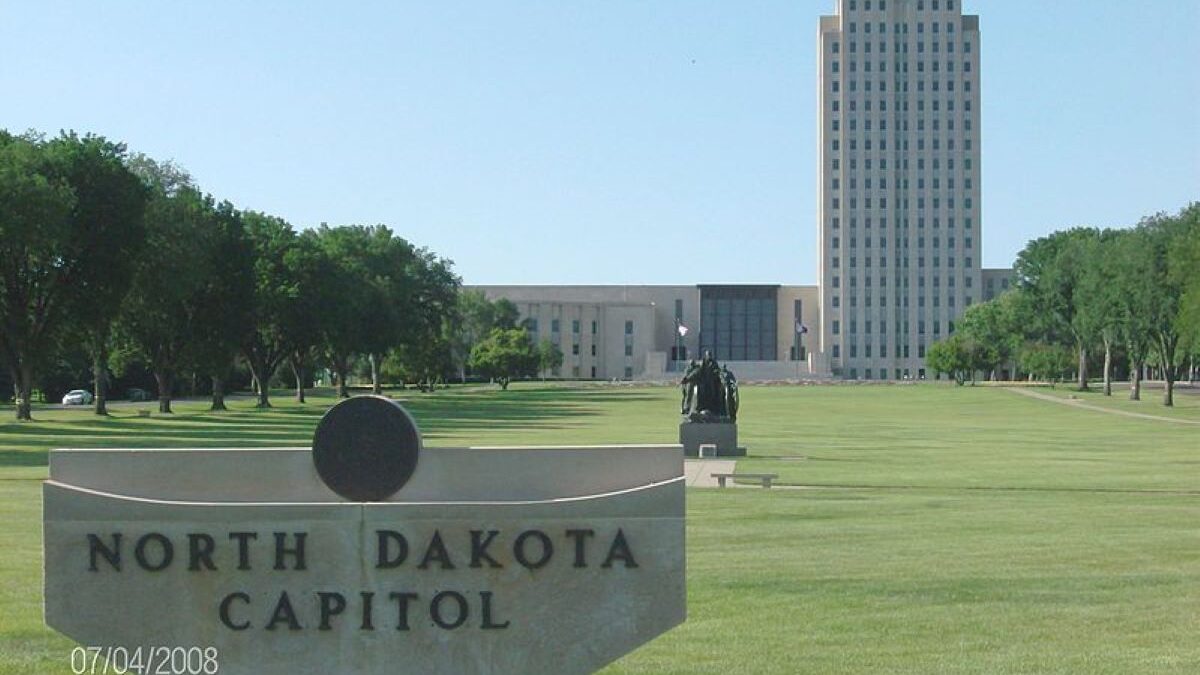
A prominent election integrity group is calling on North Dakota Republicans to override GOP Gov. Doug Burgum’s veto of legislation seeking to ban the use of ranked-choice voting (RCV) in elections.
“It’s unfortunate that Gov. Burgum would veto such commonsense legislation protecting the right to vote in free and fair elections voters can trust,” Ken Cuccinelli, the national chairman of the Election Transparency Initiative and former Virginia Attorney General, told The Federalist. RCV, he went on, “must always be rejected and we call on the legislature, which backed this bill with more than two-thirds majorities in each chamber” to employ “a veto override without delay.”
On Thursday, Burgum vetoed HB 1273, which seeks to prohibit the use of RCV “in determining the election or nomination of any candidate to any local, state, or federal elective office.” The measure passed the Senate last week (33-13) after previously clearing the House of Representatives (74-19) in February.
Under RCV, voters rank candidates in order of preference. If no candidate receives a majority of first-choice votes in the first round of voting, the last-place finisher is eliminated, and his votes are reallocated to the voter’s second-choice candidate. Such a process continues until one candidate receives a majority of votes.
In a letter sent to North Dakota House Speaker Dennis Johnson on Thursday, Burgum claimed HB 1273 “undermines local control of local political subdivisions exercising their granted powers” under state law.
“House Bill 1273 blatantly infringes on local control and the ability of residents in home rule cities to determine which method of local city election is best for their communities based on the unique aspects of city elections, including those that often have a very large field of candidates elected at-large and not by wards, with no party affiliation and no primary or runoff elections,” Burgum wrote.
In his remarks, Cuccinelli called Burgum’s analysis “misguided” and blasted RCV as “a scheme designed by Democrats and liberal Republicans to confuse voters, protect failed lawmakers who have long lost the confidence of their constituents, and to ultimately rig elections in their favor.”
RCV has “been an unmitigated disaster when implemented in public elections, makes voting more difficult, reduces transparency, and puts voter confidence at risk,” Cuccinelli said. “Under a Ranked-Choice Voting Scheme, liberal politicians get elected to office and conservative candidates are defeated.”
Johnson did not respond to The Federalist’s request for comment on whether he intends to hold a veto override vote for HB 1273.
States that have implemented an RCV system have shown validity to Cuccinelli’s assessment. While Maine and Alaska are the only two states to employ RCV so far, their respective elections since implementing the system have produced outcomes that clearly contradict the desires of voters.
In Maine, then-incumbent GOP Rep. Bruce Poliquin lost to Democrat Jared Golden during the 2018 midterms, despite Poliquin winning the most votes in the first round of voting. That outcome was due to the state’s ranked-choice voting system.
Similarly, in Alaska, Democrat Mary Peltola won the state’s at-large congressional seat last year even though “nearly 60 percent of voters [cast] their ballots for a Republican.” RCV also played a major role in helping Alaska GOP Sen. Lisa Murkowski fend off a challenge from Trump-backed Kelly Tshibaka during the 2022 midterms. The system allowed her to win due to being listed second on Alaska Democrats’ ranked-choice ballots.
“Now more than ever, we need to safeguard the integrity of our elections and the confidence of voters, but disastrous Ranked-Choice Voting schemes do precisely the opposite,” Cuccinelli said.
States that have banned the use of ranked-choice voting in elections include Florida, Tennessee, South Dakota, and Idaho. Other states, such as Arizona, Alaska, Texas, and Montana, are considering RCV bans.








